
Dame Daphne du Maurier, Lady Browning, was an English novelist, biographer and playwright. Her parents were actor-manager Sir Gerald du Maurier and his wife, actress Muriel Beaumont. Her grandfather George du Maurier was a writer and cartoonist.

Margaret Forster was an English novelist, biographer, memoirist, historian and critic, best known for the 1965 novel Georgy Girl, made into a successful film of the same name, which inspired a hit song by The Seekers. Other successes were a 2003 novel, Diary of an Ordinary Woman, biographies of Daphne du Maurier and Elizabeth Barrett Browning, and her memoirs Hidden Lives and Precious Lives.

Rebecca is a 1938 Gothic novel by the English author Daphne du Maurier. The novel depicts an unnamed young woman who impetuously marries a wealthy widower, before discovering that both he and his household are haunted by the memory of his late first wife, the title character.

Sir Gerald Hubert Edward Busson du Maurier was an English actor and manager. He was the son of author George du Maurier and his wife, Emma Wightwick, and the brother of Sylvia Llewelyn Davies. In 1903, he married the actress Muriel Beaumont, with whom he had three daughters: writers Angela du Maurier (1904–2002) and Dame Daphne du Maurier (1907–1989), and painter Jeanne du Maurier (1911–1997). His popularity was due to his subtle and naturalistic acting: a "delicately realistic style of acting that sought to suggest rather than to state the deeper emotions". His Times obituary said of his career: "His parentage assured him of engagements in the best of company to begin with; but it was his own talent that took advantage of them."

Rebecca's Tale is a 2001 novel by British author Sally Beauman. The book is a sequel to the Daphne du Maurier novel Rebecca and is officially approved by the Du Maurier estate. It continues the original plot and is also roughly consistent with the 1993 sequel Mrs de Winter by Susan Hill.
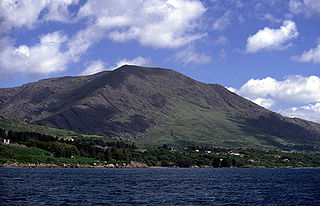
Hungry Hill or Knockday is the highest of the Caha Mountains on the Beara Peninsula in Munster, Ireland.
A parasite is an organism that has sustained contact with another organism to the detriment of the host organism.

Hungry Hill is a novel by British author Daphne du Maurier, published in 1943. It was her seventh novel. There have been 33 editions of the book printed.

A Sucessora is a novel written by the Brazilian writer Carolina Nabuco. It was first published in 1934 and was later adapted into the 1978 telenovela A Sucessora.

The House on the Strand is a novel by Daphne du Maurier, first published in the UK in 1969 by Victor Gollancz, with a jacket illustration by her daughter, Flavia Tower. The US edition was published by Doubleday.

Peter Ibbetson is a 1935 American black-and-white drama/fantasy film directed by Henry Hathaway and starring Gary Cooper and Ann Harding. The film is loosely based on the 1891 novel of the same name by George du Maurier. A tale of a love that transcends all obstacles, it relates the story of two youngsters who are separated in childhood and then drawn together by destiny years later. Even though they are separated in real life because Peter is unjustly convicted of murder, they discover they can dream themselves into each other's consciousness while asleep. In this way, they live out their lives together. The transitions between reality and fantasy are captured by the cinematography of Charles Lang, as discussed in the documentary Visions of Light (1992).

The Years Between is a play by the English writer Daphne du Maurier, better known as a novelist and particularly as the author of Rebecca. This is one of two original plays that she wrote. The other is September Tide (1948).
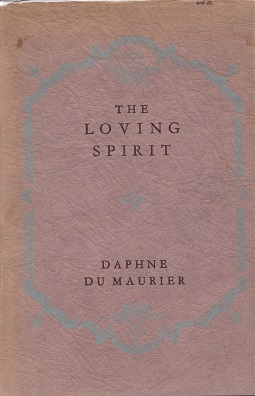
The Loving Spirit was the first novel of Daphne du Maurier and was published in 1931 by William Heinemann. The book takes its name from a line in the poem "Self-Interrogation" by Emily Brontë.
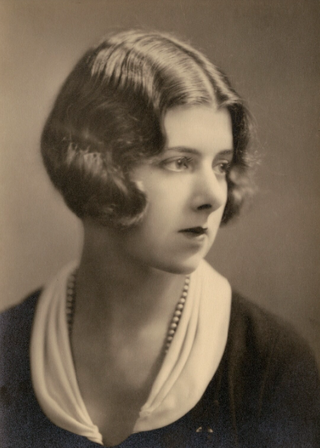
Angela Busson du Maurier was an English actress and novelist who also wrote two volumes of autobiography, It's Only the Sister (1951) and Old Maids Remember (1965). Her sister was the novelist Daphne du Maurier, and her grandfather was George du Maurier, a writer and cartoonist.

The King's General is a novel, published in 1946, by English author and playwright Daphne du Maurier.
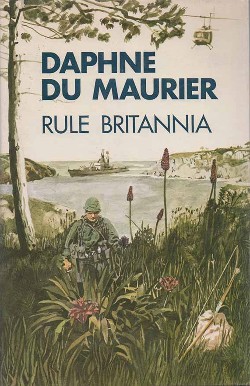
Rule Britannia is Daphne du Maurier's last novel, published in 1972 by Victor Gollancz. The novel is set in a fictional near future in which the UK's recent withdrawal from the EEC has brought the country to the verge of bankruptcy.

Rebecca Zanetti is a New York Times and USA Today bestselling author of paranormal romance, contemporary romance, and romantic suspense.

Carolina Nabuco, born Maria Carolina Nabuco de Araújo, was a Brazilian writer and translator.
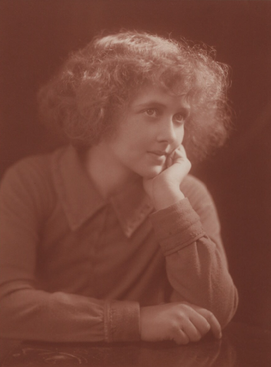
Jeanne du Maurier was an English artist. She was the third daughter of Sir Gerald du Maurier and Muriel Beaumont, and sister of writers Daphne and Angela du Maurier.

Mexican Gothic is a 2020 gothic horror novel by Mexican Canadian author Silvia Moreno-Garcia. It centers on a young woman investigating her cousin's claims that her husband is trying to murder her.


















